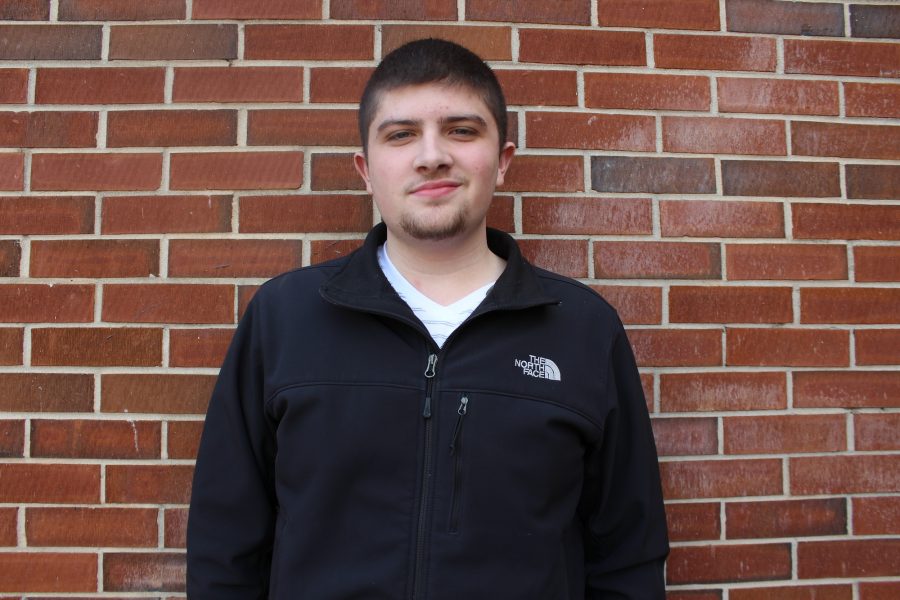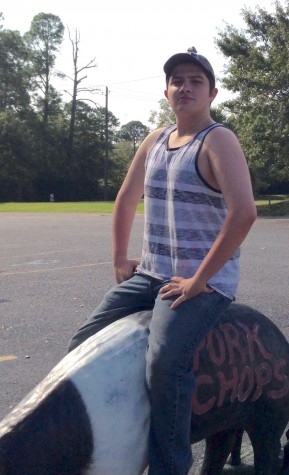Panama Papers explained: Data leak exposes 1%
April 20, 2016
Everyone endures some struggle every day, whether as petty as deciding what to wear or as excruciating as deciding how to feed your family in a war zone. The one percent of individuals who hold the majority of wealth in the world, however, rarely feel these struggles.
The one percent of humanity owning approximately 50 percent of the world’s known wealth consistently avoids their duty to pay taxes as a citizen and a human being. Yet for some reason, many of those who obtain such tremendous wealth feel the need to avoid taxation.
The Panama Papers, the biggest data leak in history, exposes this secret world the one percent live in to save their precious money. Someone leaked 2.6 terabytes of data to the International Consortium of Investigative Journalists, or the ICIJ. All of this data consisted of word documents or emails.
Consider this: the average word document consists of about 401 kilobytes, which takes up only .00000026% of the entire 2.6 terabyte collection. Using that as the scale of this leak, the ICIJ has put a massive team from 100 news outlets to comb over this data for about a year now. Still, they do not even come halfway to reading all of the information, but they did uncover revelations which will set a new world order.
To start from the beginning of the story, the main hinge of this corruption pivots on something called a shell company. From the definition of Investopedia, “A shell corporation is a corporation without active business operations or significant assets.” Shell corporations are not necessarily illegal or illegitimate, as they often serve do not exist as illegal entities, and they can actually exist as extremely beneficial in how companies run international business as research development and startups. The problem comes when firms who host these companies take shady deals which can lead to illegal activity.
Mossack Fonseca, a law firm in Panama, centers as one of said companies who can create and host shell companies for high profile individuals. The issue remains that Mossack Fonseca stands as one of those companies who commit dirty deals, and emerges as the central player in this corruption ring.
The leak exposed that Mossack Fonseca worked with companies sold to high profile individuals where they can invest extremely large amounts of money for “Technological Research.” This research, most of the time with illegal companies, exists as fronts where wealthy individuals put their money to avoid taxes on said money, seeing as the technological research falls under a tax free development fund.
Now it comes to the who: who are the high profile individuals who are illegally avoiding taxes for their own gain? Firstly, it would appear as if no other than everyone’s favorite dictator, President Vladimir Putin dabbled in the act. Putin’s long time friends, Arkady and Boris Rotenberg, had coincidentally reached a deal for the Sochi Olympics contract for 7 billion dollars personally to them. Yet they also received a “research” contract through Mossack Fonseca, none of which was documented in official Russian documents. No one dropped names linking to Putin, but many of the purchases listed need to obtain his permission to actually occur, leading the assumption he heads this ring.
The leak also implicated another player of Putin, President Bashar Al-Assad of Syria, whose country still fights the five year civil war that claimed the lives of a minimum of 250,000 people. The war continues to accumulate rising expenses, so theoretically with Syria’s industry and funds, should have ended two to three years ago. Syria’s funding comes through these shell companies, the war effort which kills civilians indiscriminately daily receives billions if not trillions of dollars. Corruption, more than just saving money, literally perpetuates a war killing hundreds of thousands of people.
The corruption also leads to another human effect: Uganda’s current President’s son possesses one of these accounts for his oil company. That oil company, worth trillions, invested those trillions into a shell company. If the government taxed that money, the country’s budget would increase by $400 million, which doubles the health budget of a country of over 50 percent mortality rate.
However, the leak led to some massive progress: the President of Iceland resigned due to corruption, along with the President of Ukraine, who claimed corruption in the government remains unchanged and stepped down which led to massive protests for the Prime Minister to do the same. The Prime Minister of the U.K. also received demands from the public to step down when it came out that his father owned one of these companies and he benefited from those funds. Recently, a vote also took place to impeach the president of Brazil over claims of corruption and nepotism, which passed Brazil’s lower legislative level passed.
The list spans across the globe but still, no silver lining in how much corruption exists in just this leak alone. Some other corrupt leaders exposed include the President of Argentina, the King of Saudi Arabia, the President of the UAE, the favorite contractor of the President of Mexico, and many more.
Somehow, amongst all of the politicians and world leaders exposed, no report of Americans surfaced. Not a single one, which with America’s corruption reputation remains astonishing. That creates a theory which could be one of two things: either the ICIJ continues to wait to massively expose America’s corruption all at once, or Mossack Fonseca simply stays as a foreign company. America, with subsidies and tax benefits galore, can exist as its own tax haven.
Next comes the largest question of all: what now? After seeing how much corruption truly resides among us, how do we progress? The answers simple: speak up. If the world finally unites around one cause, maybe we can do something about it. No one wants corruption but the corrupt, meaning we as global citizens possess a duty to not let this issue rest, and leave no place for the corrupt to hide.







